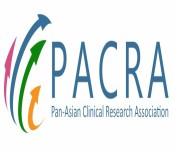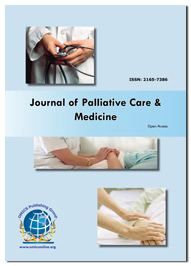Theme: New Innovations on Hospice and Palliative care
Hospice and palliativecare 2018
We, Conferenceseries LLC LTD, welcomes all the attendees, presenters and exhibitors from all over the world to Melbourne, Australia on July 18-19, 2018 for “5th World Congress on Hospice and Palliative Care” and it will entail lively debates, prompt keynote presentations, Oral talks, Poster presentations, workshops and networking opportunities around a core of plenary and concurrent sessions based on vital issues in the Primary Healthcare sector. We invite you all to share your knowledge and expertise on a theme of “Approaches towards better Hospice and Palliative Care” with the fellow attendees and presenters.
Scope and Importance
Hospice and Palliative Care involves the medical caring along with the professional caring of the families and relatives to the patient admitted. Patients suffering from either terminal of chronic disease or acute illness may not worry about their families as great and proper bind of care is taken under this inter-multi-trans-disciplinary sector to achieve and exchange the best and latest results.
Target Audience:
- Palliative care specialists
- Health care community
- Clinicians and researchers
- Funders
- The general public
- Geriatricians
- Physicians
- Geriatric Physicians
- Hospice and end of life care
- Medical Director
- Palliative Care Nurses
- Pharmacists
- Geriatric Specialist
- Occupational Therapists
- Healthcare Faculty
- Social Workers
- Community care coordinators
- Business delegates and industry professionals
- Researchers
- Students and others interested in the field of Geriatrics
We, therefore, encourage all colleagues from all over the world to participate and help us to make this an unforgettable important and enjoyable congress.
We look forward to seeing you in Melbourne, Australia!!!
Track 1: Hospice and Palliative Care
Hospice and Palliative Care is the active, expert and gentle care and support of individuals living with a serious, progressive illness when cure is not expected. This is the holistic in nature – caring for the ‘’whole’’ person and their family. The aims of hospice and palliative care is to support and improve quality of life for those in the last stage of living, and their families. This offers social, emotional and spiritual support to individuals and families through members of an interdisciplinary team including physicians, nurses, social workers, home care nursing, home support, Hospice staff and volunteers, and other disciplines. Palliative care may be offered for people with illnesses, such as like: Cancer, Heart disease, Lung diseases, Kidney failure, Dementia, HIV/AIDS, ALS (amyotrophic lateral sclerosis) etc.
Recommended Palliative care Conferences | Hospice Meetings | Health care Meetings
4th International Conference on Palliative Care and Hospice Nursing, August 27-28, 2018 Boston, MA, USA; 6th Annual Congress & Medicare Expo on Primary Healthcare, May 14-16, 2018 Tokyo, Japan, 30th Global Experts Meeting on Neonatal Nursing and Maternal Healthcare, May 14-16, 2018 Singapore; 7th World Congress on Midwifery and Women’s Health, May 14-15, 2018 Singapore; 5th Asia Pacific Gynecology and Obstetrics Congress, August 22-23, 2018 Tokyo, Japan.
Track 02:Palliative care in Geriatrics
Geriatrics is a specialty that focuses on health care of elderly people. It aims to promote health by preventing and treating diseases and disabilities in older adults. There is no set age at which patients may be under the care of a geriatrician or geriatric physician, a physician who specializes in the care of elderly people. Rather, this decision is determined by the individual patient's needs, and the availability of a specialist. Geriatrics differs from standard adult medicine because it focuses on the unique needs of the elderly person. The aged body is different physiologically from the younger adult body, and during old age, the decline of various organ systems becomes manifest. Previous health issues and lifestyle choices produce a different constellation of diseases and symptoms in different people.
Recommended Palliative care Conferences | Hospice Meetings | Geriatrics Conferences | Health care Summits
4th International Conference on Palliative Care and Hospice Nursing, August 27-28, 2018 Boston, MA, USA; 6th Annual Congress & Medicare Expo on Primary Healthcare, May 14-16, 2018 Tokyo, Japan, 30th Global Experts Meeting on Neonatal Nursing and Maternal Healthcare, May 14-16, 2018 Singapore; 7th World Congress on Midwifery and Women’s Health, May 14-15, 2018 Singapore; 5th Asia Pacific Gynecology and Obstetrics Congress, August 22-23, 2018 Tokyo, Japan.
Track 03: Palliative care in Assisted Dying
Palliative care professionals say the problems that lead to supported dying requests can usually be dealt with in ways that do not accelerate death. They promote quality of life and reject the idea of “dying on demand”. Supporters of aided dying, argue that palliative care cannot be effective in every case. To them, the important thing is to respect independence and self-determination of choice.
Recommended Palliative care Conferences | Hospice Meetings | Aging Conferences | Health care Conferences
4th International Conference on Palliative Care and Hospice Nursing, August 27-28, 2018 Boston, MA, USA; 6th Annual Congress & Medicare Expo on Primary Healthcare, May 14-16, 2018 Tokyo, Japan, 30th Global Experts Meeting on Neonatal Nursing and Maternal Healthcare, May 14-16, 2018 Singapore; 7th World Congress on Midwifery and Women’s Health, May 14-15, 2018 Singapore; 5th Asia Pacific Gynecology and Obstetrics Congress, August 22-23, 2018 Tokyo, Japan.
Track 04:Palliative Care and End of life Care
Palliative care that improves the quality of life and quality of care for patients with life threatening or life-limiting sickness and their families through the prevention and relief of suffering, communication about goals of care, and early identification and assessment and treatment of pain and other problems, physical, psychosocial and spiritual.
End-of-life care is care taking place in the last part of a patient’s life, typically in the last few months, depending on the primary diagnosis and clinical course and includes planning for end-of-life care.
Recommended Palliative care Conferences | Geriatrics Conferences | Aging Conferences | Health care Meetings
4th International Conference on Palliative Care and Hospice Nursing, August 27-28, 2018 Boston, MA, USA; 6th Annual Congress & Medicare Expo on Primary Healthcare, May 14-16, 2018 Tokyo, Japan, 30th Global Experts Meeting on Neonatal Nursing and Maternal Healthcare, May 14-16, 2018 Singapore; 7th World Congress on Midwifery and Women’s Health, May 14-15, 2018 Singapore; 5th Asia Pacific Gynecology and Obstetrics Congress, August 22-23, 2018 Tokyo, Japan.
Track 05: Palliative Care in Symptom Management
Palliative care plays an important role to manage the multiple symptoms commonly experienced by the chronically ill or dying patients remains a primary goal of Palliative care nursing. There are so many ongoing clinical assessment, reassessing pain and medication side effects, developing pain management expertise and advocating for change if the patients does not get relief from the prescribed regimen.
Recommended Hospice Meetings | Geriatrics Conferences | Aging Conferences | Health care Summits
4th International Conference on Palliative Care and Hospice Nursing, August 27-28, 2018 Boston, MA, USA; 6th Annual Congress & Medicare Expo on Primary Healthcare, May 14-16, 2018 Tokyo, Japan, 30th Global Experts Meeting on Neonatal Nursing and Maternal Healthcare, May 14-16, 2018 Singapore; 7th World Congress on Midwifery and Women’s Health, May 14-15, 2018 Singapore; 5th Asia Pacific Gynecology and Obstetrics Congress, August 22-23, 2018 Tokyo, Japan.
Track 06: Palliative care and Rehabilitation medicine
Palliative care and Rehabilitation medicine share many common goals. They strive to maximize physical function and emotional well-being to the highest extent possible given the nature of the underlying disease process. Many patients with End-Stage disease experience symptoms and functional losses that diminish their quality of life.
Recommended Palliative care Conferences | Hospice Meetings | Aging Conferences | Health care Conferences
4th International Conference on Palliative Care and Hospice Nursing, August 27-28, 2018 Boston, MA, USA; 6th Annual Congress & Medicare Expo on Primary Healthcare, May 14-16, 2018 Tokyo, Japan, 30th Global Experts Meeting on Neonatal Nursing and Maternal Healthcare, May 14-16, 2018 Singapore; 7th World Congress on Midwifery and Women’s Health, May 14-15, 2018 Singapore; 5th Asia Pacific Gynecology and Obstetrics Congress, August 22-23, 2018 Tokyo, Japan.
Track 07: Palliative care and Occupational therapy
Occupational therapy practitioners play an important role on palliative and hospice care teams by identifying life roles and activities (“occupations”) that are meaningful to patients and addressing barriers to performing these activities. Unlike other health care providers, they consider both the physical and psychosocial/ behavioral health needs of the patient, focusing on what is most important to him or her to accomplish, the available resources and support systems, and the environments in which the patients want and can participate.
Recommended Palliative care Conferences | Hospice Meetings | Health care Summits
4th International Conference on Palliative Care and Hospice Nursing, August 27-28, 2018 Boston, MA, USA; 6th Annual Congress & Medicare Expo on Primary Healthcare, May 14-16, 2018 Tokyo, Japan, 30th Global Experts Meeting on Neonatal Nursing and Maternal Healthcare, May 14-16, 2018 Singapore; 7th World Congress on Midwifery and Women’s Health, May 14-15, 2018 Singapore; 5th Asia Pacific Gynecology and Obstetrics Congress, August 22-23, 2018 Tokyo, Japan.
Track 08: Palliative care and Spiritual care
Spiritual care is an essential domain of palliative care, which focuses on the needs of the whole person and their family. Spirituality is a fundamental element of human experience. It includes the character’s search for meaning and determination in life and the experience of the superior. For some people spirituality can be largely faith based, for others it may be their relationship with nature or the profound connections they have with their people. Spirituality may or may not involve devout opinions.
Recommended Palliative care Conferences | Hospice Meetings | Aging Conferences | Health care Meetings
4th International Conference on Palliative Care and Hospice Nursing, August 27-28, 2018 Boston, MA, USA; 6th Annual Congress & Medicare Expo on Primary Healthcare, May 14-16, 2018 Tokyo, Japan, 30th Global Experts Meeting on Neonatal Nursing and Maternal Healthcare, May 14-16, 2018 Singapore; 7th World Congress on Midwifery and Women’s Health, May 14-15, 2018 Singapore; 5th Asia Pacific Gynecology and Obstetrics Congress, August 22-23, 2018 Tokyo, Japan.
Track 09: Palliative care and Emergency Medicine
Emergency medicine has progressively taken a central role in the early execution of palliative care. Patients with a serious disease are likely to find themselves in an emergency section at some point along their course of illness, and they should expect to receive high-quality palliative care in that setting. Common integration of palliative care into the day-to-day practice of emergency medicine, however, is often exposed by the demands of many competing priorities..
Recommended Hospice Meetings | Geriatrics Conferences | Aging Conferences | Health care Conferences
4th International Conference on Palliative Care and Hospice Nursing, August 27-28, 2018 Boston, MA, USA; 6th Annual Congress & Medicare Expo on Primary Healthcare, May 14-16, 2018 Tokyo, Japan, 30th Global Experts Meeting on Neonatal Nursing and Maternal Healthcare, May 14-16, 2018 Singapore; 7th World Congress on Midwifery and Women’s Health, May 14-15, 2018 Singapore; 5th Asia Pacific Gynecology and Obstetrics Congress, August 22-23, 2018 Tokyo, Japan.
Track 10: Palliative Care Nursing
‘’Nursing is primarily assisting the individual in the performance of those activities contributing to health and its recovery, or to a peaceful death’’ Virginia’s definition of Nursing. The role of Nursing in palliative care is to provide relief for physical symptoms, achieving quality of life, maintaining an independent patient, relief for mental anguish and social isolation, family support, reducing isolation, fear and anxiety and good death or dying well.
Recommended Palliative care Conferences | Hospice Meetings | Health care Meetings
4th International Conference on Palliative Care and Hospice Nursing, August 27-28, 2018 Boston, MA, USA; 6th Annual Congress & Medicare Expo on Primary Healthcare, May 14-16, 2018 Tokyo, Japan, 30th Global Experts Meeting on Neonatal Nursing and Maternal Healthcare, May 14-16, 2018 Singapore; 7th World Congress on Midwifery and Women’s Health, May 14-15, 2018 Singapore; 5th Asia Pacific Gynecology and Obstetrics Congress, August 22-23, 2018 Tokyo, Japan.
Track 11: Pediatric Palliative care
Pediatric Palliative care is specific medical care for children with serious sicknesses. Its attentions on providing relief from the symptoms, pain, and stress of a serious illness’s diagnosis of any kind. The aim is to progress in superiority of life for both the child and the family.
Crew of doctors, nurses and other specialists generally provide the Pediatric Palliative care who works with a child’s other doctors as an additional deposit of support. It is suitable at any age and at any stage of sickness and can be provided laterally with treatment meant to cure.
Recommended Palliative care Conferences | Hospice Meetings | Aging Conferences | Health care Summits
4th International Conference on Palliative Care and Hospice Nursing, August 27-28, 2018 Boston, MA, USA; 6th Annual Congress & Medicare Expo on Primary Healthcare, May 14-16, 2018 Tokyo, Japan, 30th Global Experts Meeting on Neonatal Nursing and Maternal Healthcare, May 14-16, 2018 Singapore; 7th World Congress on Midwifery and Women’s Health, May 14-15, 2018 Singapore; 5th Asia Pacific Gynecology and Obstetrics Congress, August 22-23, 2018 Tokyo, Japan.
Track 12: Palliative care in Oncology
Oncology deals to the patient of cancer for medically treatment. The patients suffered so much by the medical treatment from side effects and emotional issues. Palliative care provides professional treatment and provide the treatment against the symptoms, their side effects, and emotional problems. Palliative care pushes upward to provide mentally fit.
Recommended Palliative care Conferences | Hospice Meetings | Health care Meetings
4th International Conference on Palliative Care and Hospice Nursing, August 27-28, 2018 Boston, MA, USA; 6th Annual Congress & Medicare Expo on Primary Healthcare, May 14-16, 2018 Tokyo, Japan, 30th Global Experts Meeting on Neonatal Nursing and Maternal Healthcare, May 14-16, 2018 Singapore; 7th World Congress on Midwifery and Women’s Health, May 14-15, 2018 Singapore; 5th Asia Pacific Gynecology and Obstetrics Congress, August 22-23, 2018 Tokyo, Japan.
Track 13: Palliative Care in Pain Management
Palliative care is a special type of medical care that focuses on treatment of symptoms people may have when they are living with a chronic (longstanding) illness, such as cancer or heart failure. It is often compared to the hospice care that is offered to terminally ill people. In palliative care, the goal is to provide the best quality of life possible even if someone is not terminally ill.
Recommended Palliative care Conferences | Hospice Meetings | Health care Meetings
4th International Conference on Palliative Care and Hospice Nursing, August 27-28, 2018 Boston, MA, USA; 6th Annual Congress & Medicare Expo on Primary Healthcare, May 14-16, 2018 Tokyo, Japan, 30th Global Experts Meeting on Neonatal Nursing and Maternal Healthcare, May 14-16, 2018 Singapore; 7th World Congress on Midwifery and Women’s Health, May 14-15, 2018 Singapore; 5th Asia Pacific Gynecology and Obstetrics Congress, August 22-23, 2018 Tokyo, Japan.
Track 14: Palliative Care and Health Issues
Palliative care can address a broad range of issues, integrating an individual’s specific needs into care. The physical and emotional effects of cancer and its treatment may be very different from person to person. For example, differences in age, cultural background, or support systems may result in very different palliative care needs.
Recommended Palliative care Conferences | Hospice Meetings | Health care Meetings
4th International Conference on Palliative Care and Hospice Nursing, August 27-28, 2018 Boston, MA, USA; 6th Annual Congress & Medicare Expo on Primary Healthcare, May 14-16, 2018 Tokyo, Japan, 30th Global Experts Meeting on Neonatal Nursing and Maternal Healthcare, May 14-16, 2018 Singapore; 7th World Congress on Midwifery and Women’s Health, May 14-15, 2018 Singapore; 5th Asia Pacific Gynecology and Obstetrics Congress, August 22-23, 2018 Tokyo, Japan.
Track 15: Palliative Care and Chronic Diseases
Chronic illnesses are marked by fluctuations and variations over time. Individuals with chronic illness experience pain and other symptoms that are not always adequately managed. Their caregivers often must deal with enormous burden as the illness progresses. Palliative care can serve as an intervention to manage chronic illness, not just at the end of life but also in the early phases of illness.
Recommended Palliative care Conferences | Hospice Meetings | Health care Meetings
4th International Conference on Palliative Care and Hospice Nursing, August 27-28, 2018 Boston, MA, USA; 6th Annual Congress & Medicare Expo on Primary Healthcare, May 14-16, 2018 Tokyo, Japan, 30th Global Experts Meeting on Neonatal Nursing and Maternal Healthcare, May 14-16, 2018 Singapore; 7th World Congress on Midwifery and Women’s Health, May 14-15, 2018 Singapore; 5th Asia Pacific Gynecology and Obstetrics Congress, August 22-23, 2018 Tokyo, Japan.
Track 16: Palliative Care and Non-Malignant Diseases
Heart Disease identifies the need for patients with heart failure to have access to palliative care services for on-going support and advice; and for Renal Services goes further, listing as a quality requirement for patients near the end of life to have ‘a jointly agreed palliative care plan, built around their individual needs and preferences'.
Recommended Palliative care Conferences | Hospice Meetings | Health care Meetings
4th International Conference on Palliative Care and Hospice Nursing, August 27-28, 2018 Boston, MA, USA; 6th Annual Congress & Medicare Expo on Primary Healthcare, May 14-16, 2018 Tokyo, Japan, 30th Global Experts Meeting on Neonatal Nursing and Maternal Healthcare, May 14-16, 2018 Singapore; 7th World Congress on Midwifery and Women’s Health, May 14-15, 2018 Singapore; 5th Asia Pacific Gynecology and Obstetrics Congress, August 22-23, 2018 Tokyo, Japan.
Track 17: Palliative Care and Psychiatry
Palliative care psychiatry focuses on the emotional and social issues that arise in someone with an advanced illness, often in someone who is receiving hospice or palliative care (hospice being one end of the palliative care spectrum, which offers enhanced palliative care to patients with a short prognosis).
Recommended Palliative care Conferences | Hospice Meetings | Health care Meetings
4th International Conference on Palliative Care and Hospice Nursing, August 27-28, 2018 Boston, MA, USA; 6th Annual Congress & Medicare Expo on Primary Healthcare, May 14-16, 2018 Tokyo, Japan, 30th Global Experts Meeting on Neonatal Nursing and Maternal Healthcare, May 14-16, 2018 Singapore; 7th World Congress on Midwifery and Women’s Health, May 14-15, 2018 Singapore; 5th Asia Pacific Gynecology and Obstetrics Congress, August 22-23, 2018 Tokyo, Japan.
Track 18: Palliative Care and Nutrition
Nutrition in palliative care and at the end of life should be one of the goals for improving quality of life. It is important to address issues of food and feeding currently to assist in the management of troublesome symptoms as well as to enhance the remaining life. Cancer and its treatments exert a major impact upon physical and psychological reserves and at the end of life problems with appetite and the ability to eat and drink compound such impact.
Recommended Palliative care Conferences | Hospice Meetings | Health care Meetings
4th International Conference on Palliative Care and Hospice Nursing, August 27-28, 2018 Boston, MA, USA; 6th Annual Congress & Medicare Expo on Primary Healthcare, May 14-16, 2018 Tokyo, Japan, 30th Global Experts Meeting on Neonatal Nursing and Maternal Healthcare, May 14-16, 2018 Singapore; 7th World Congress on Midwifery and Women’s Health, May 14-15, 2018 Singapore; 5th Asia Pacific Gynecology and Obstetrics Congress, August 22-23, 2018 Tokyo, Japan.
Track 19: Palliative care and Bioethics
Palliative care is a philosophy and a way of caring that aims to enhance the quality of life of patients and their families facing problems associated with life-threatening illnesses. The objective of palliative care is the prevention and relief of suffering by symptom control by integrating the Health Sciences with the Humanities.
Recommended Palliative care Conferences | Hospice Meetings | Health care Meetings
4th International Conference on Palliative Care and Hospice Nursing, August 27-28, 2018 Boston, MA, USA; 6th Annual Congress & Medicare Expo on Primary Healthcare, May 14-16, 2018 Tokyo, Japan, 30th Global Experts Meeting on Neonatal Nursing and Maternal Healthcare, May 14-16, 2018 Singapore; 7th World Congress on Midwifery and Women’s Health, May 14-15, 2018 Singapore; 5th Asia Pacific Gynecology and Obstetrics Congress, August 22-23, 2018 Tokyo, Japan.
Track 20: Palliative Care and Healthcare
Health care or healthcare is the maintenance or improvement of health via the diagnosis, treatment, and prevention of disease, illness, injury, and other physical and mental impairments in human beings. Health care is delivered by health professionals (providers or practitioners) in allied health professions, chiropractic, dentistry, midwifery, nursing, medicine, optometry, pharmacy, psychology, and other health professions. It includes the work done in providing primary care, secondary care, and tertiary care, as well as in public health.
Recommended Palliative care Conferences | Hospice Meetings | Health care Meetings
4th International Conference on Palliative Care and Hospice Nursing, August 27-28, 2018 Boston, MA, USA; 6th Annual Congress & Medicare Expo on Primary Healthcare, May 14-16, 2018 Tokyo, Japan, 30th Global Experts Meeting on Neonatal Nursing and Maternal Healthcare, May 14-16, 2018 Singapore; 7th World Congress on Midwifery and Women’s Health, May 14-15, 2018 Singapore; 5th Asia Pacific Gynecology and Obstetrics Congress, August 22-23, 2018 Tokyo, Japan.
Track 21: Palliative Care and Alternative Healthcare
Complementary therapies are becoming increasingly used during the final stages of a condition, to enhance palliative or end-of-life care. These aim to help the patient cope with pain and the fear associated with the unknown, further decline, and death. These therapies include are designed to restore the body/mind balance and include things like aromatherapy, guided relaxation and imagery, music therapy, and therapeutic touch. They are thought to have a positive effect when it comes to helping the patient fall asleep, easing muscle tension, enhancing the effect of pain medication, enhancing rest, and relieving anxiety.
Recommended Palliative care Conferences | Hospice Meetings | Health care Meetings
4th International Conference on Palliative Care and Hospice Nursing, August 27-28, 2018 Boston, MA, USA; 6th Annual Congress & Medicare Expo on Primary Healthcare, May 14-16, 2018 Tokyo, Japan, 30th Global Experts Meeting on Neonatal Nursing and Maternal Healthcare, May 14-16, 2018 Singapore; 7th World Congress on Midwifery and Women’s Health, May 14-15, 2018 Singapore; 5th Asia Pacific Gynecology and Obstetrics Congress, August 22-23, 2018 Tokyo, Japan.
Track 22: Palliative Care and Interventions
Palliative care at the end of life involves meeting the physical, psychological, social, and practical needs of patients and caregivers. It is not limited to the short period of time when the person is moribund. Good clinical care can prevent or alleviate suffering for many patients at the end of life by assessing symptoms and providing psychological and social support to the patients and their families.
Recommended Palliative care Conferences | Hospice Meetings | Health care Meetings
4th International Conference on Palliative Care and Hospice Nursing, August 27-28, 2018 Boston, MA, USA; 6th Annual Congress & Medicare Expo on Primary Healthcare, May 14-16, 2018 Tokyo, Japan, 30th Global Experts Meeting on Neonatal Nursing and Maternal Healthcare, May 14-16, 2018 Singapore; 7th World Congress on Midwifery and Women’s Health, May 14-15, 2018 Singapore; 5th Asia Pacific Gynecology and Obstetrics Congress, August 22-23, 2018 Tokyo, Japan.
Track 23: Palliative Care Management and Leadership
Research shows that palliative care and its many components are beneficial to patient and family health and well-being. Several studies in recent years have shown that patients who have their symptoms controlled and are able to communicate their emotional needs have a better experience with their medical care. Their quality of life and physical symptoms improve.
Recommended Palliative care Conferences | Hospice Meetings | Health care Meetings
4th International Conference on Palliative Care and Hospice Nursing, August 27-28, 2018 Boston, MA, USA; 6th Annual Congress & Medicare Expo on Primary Healthcare, May 14-16, 2018 Tokyo, Japan, 30th Global Experts Meeting on Neonatal Nursing and Maternal Healthcare, May 14-16, 2018 Singapore; 7th World Congress on Midwifery and Women’s Health, May 14-15, 2018 Singapore; 5th Asia Pacific Gynecology and Obstetrics Congress, August 22-23, 2018 Tokyo, Japan.
Track 24: Advance Care Planning
Advance care planning is a process that enables individuals to make plans about their future health care. Advance care plans provide direction to healthcare professionals when a person is not able to plan either make and/or communicate their own healthcare choices. Advance care planning is applicable to adults at all stages of life. Participation in advance care planning has been shown to reduce stress and anxiety for patients and their families, and lead to improvements in end of life care.
Recommended Palliative care Conferences | Hospice Meetings | Health care Meetings
4th International Conference on Palliative Care and Hospice Nursing, August 27-28, 2018 Boston, MA, USA; 6th Annual Congress & Medicare Expo on Primary Healthcare, May 14-16, 2018 Tokyo, Japan, 30th Global Experts Meeting on Neonatal Nursing and Maternal Healthcare, May 14-16, 2018 Singapore; 7th World Congress on Midwifery and Women’s Health, May 14-15, 2018 Singapore; 5th Asia Pacific Gynecology and Obstetrics Congress, August 22-23, 2018 Tokyo, Japan.
Track 25: Entrepreneur Investment Meet
Palliative Care 2016 provides great avenues for Investors seeking for investment opportunities and expanding their business horizons. Our conference is attended by participants from more than 40 countries and attracts an interesting combination of academic researchers, practitioners and individuals who are engaged in various aspects of innovations in Palliative Care research thereby providing plenty of networking opportunities and newfound knowledge.
To explore more about business and investment opportunities write us at hospice@conferencesworld.org
Recommended Palliative care Conferences | Hospice Meetings | Health care Meetings
4th International Conference on Palliative Care and Hospice Nursing, August 27-28, 2018 Boston, MA, USA; 6th Annual Congress & Medicare Expo on Primary Healthcare, May 14-16, 2018 Tokyo, Japan, 30th Global Experts Meeting on Neonatal Nursing and Maternal Healthcare, May 14-16, 2018 Singapore; 7th World Congress on Midwifery and Women’s Health, May 14-15, 2018 Singapore; 5th Asia Pacific Gynecology and Obstetrics Congress, August 22-23, 2018 Tokyo, Japan.
Past Conference Report
Palliative Care 2017
Palliative Care-2017 marked with the attendance of Organizing Committee Members, Palliative Care experts, Physicians, Surgeons, Nurses, Physical therapists, Occupational therapists, Academic researchers, Business delegates and Talented student communities representing more than 20 countries, who made this conference fruitful and productive.
This Global Palliative Care Congress was based on the theme “Addressing the needs of patients with incurable diseases through “best care” practices” which has covered the below scientific sessions:
- Palliative Care and Hospice
- Palliative Care and Symptom Management
- Palliative Care and Geriatrics
- Palliative Care and Nursing
- Palliative Care and End of Life Care
- Palliative Care and Emergency Medicine
- Palliative Care and Oncology
The conference was moderated by Dr. Christine Kennedy, Philadelphia University, USA and Dr. Joanne Reid, Queen’s University Belfast, Ireland. The support was extended by the honorable guests Dr. Richard Wolfe, Rainbow Hospice and Palliative Care, USA, Dr. M Sara Rosenthal, University of Kentucky, USA and below keynote lectures:
Truthful prognostication: How to talk to patients about devastating diagnoses and end of life: Dr. M Sara Rosenthal, University of Kentucky, USA
Evaluation of the effectiveness of music therapy in improving the quality of life of palliative care patients: A randomized controlled pilot and feasibility study: Joanne Reid, Queen’s University Belfast, Ireland
Progesterone receptor modulation provide a safe convenient method for palliation of advanced cancers of all types: Jerome H Check, Cooper Medical School of Rowan University, USA
The intersectionality of trauma and grief: The gifts of EMDR: Dr. Christine Kennedy, Philadelphia University, USA
ConferenceSeries acknowledge the support of below Chairs and Co-chairs for whom we were able to run smoothly the scientific sessions includes: Dr. M Sara Rosenthal, University of Kentucky, USA; Joanne Reid, Queen’s University Belfast, Ireland; Jerome H Check, Cooper Medical School of Rowan University, USA; Christine Kennedy, Philadelphia University, USA .
Summary of Conference:
Palliative Care is provided by trained Doctors, nurses and practitioners and provided to terminally ill patients or those who are suffered from very serious diseases. Hospice Care is slightly different from Palliative Care, it is End of Life Care means the patients who are suffering from terminal disease but they have no chance for survive so the team of trained doctors, nurses and professionals provide them physiological and spiritual support to the patient and their families.
Conference Series is an open resource platform that conducts 3000+ global events including International Conferences, Workshops, Symposia, Trade Shows, Exhibitions and Science Congresses in all the major scientific disciplines, including Clinical, Medical, pharmaceutical, Engineering, Technology, Business Management and Life Sciences across America, Europe, The Middle East, and Asia Pacific. It is reaching over 25 million researchers, scholars, students, professionals and corporate entities all over the globe.
Conference Series is going to organize 5th World Congress on Hospice & Palliative Care with theme “Approaches towards better Hospice and Palliative Care”.
Conference Details:
Conference Date: 18-19th July 2018.
Conference Venue: Melbourne, Australia.
Abstract Submission: Started from 27 August 2017
Registration Date: Started from 27 August 2017
Conference series, are glad to welcome all the attendees, presenters and exhibitors from all over the world to Melbourne, Australia on July 18-19, 2018 for “5th World Congress on Hospice and Palliative Care”. We invite you all to share your knowledge and expertise on theme of “Approaches towards better Hospice and Palliative Care” with the fellow attendees and presenters.
Scope and Importance:
The basic need of any terminally diseased patient rather than medicine is Hospice Care and Palliative Care. Patients generally needs emotional and spiritual support on the time of treatment because they suffered a lot by some side effects and any other pain like fatigue, shortness of breath, nausea, Constipation, loss of appetite, sleeping disorders, and many others. So, Hospice Care as well as Palliative Care is equally important is like medical Care. WHO (World Health Organization) describes the Palliative Care as “An approach that improves the quality of life of patients and their families facing the problems associated with life-threatening illness, through the prevention and relief of suffering by means of early identification and impeccable assessment and treatment of pain and other problems, physical, psychosocial and spiritual”. Team of trained doctors, nurses and practitioners always provide End of Life Care and Palliative Care with pure minds and hearts.
About Australia:
“Palliative Care Australia” is the peak national organization for Palliative care and End-of-life Centers in Australia. The Australian Government provides funding to PCA for infrastructure support and operational activities.
In Australia, and many other parts of the world, the demand for Palliative Care services is increasing due to the ageing of the population and the increases in the prevalence of cancer and other chronic diseases that accompany ageing (WHO 2014).
Palliative care is provided in almost all settings where Health care is provided, including neonatal units, Pediatric services, general practices, acute hospitals, residential and community aged care services, and generalist community services. Specialist palliative care services operate from a variety of settings, including specialist inpatient consulting services, specialist inpatient settings, hospices and community-based specialist services (DoHA 2010).
The exact model of care provision differs across Australia, with each state and territory having specified an approach to providing palliative care-related services (Senate Community Affairs References Committee 2012). The states and territories have different approaches to planning and delivering publicly funded services, different local service delivery practices and differently structured health-care systems. They also have varying demographic and remoteness profiles, and varying demands for particular types of services. In recent years, there has been a focus on expanding the practice of specialist Palliative care teams to support primary Palliative care providers, often through consultative or consortium arrangements (AIHW 2010).
While Palliative care can be provided to patients in a variety of settings, a distinction is commonly made between care provided in hospitals (includes Hospices or dedicated Palliative care wards) and care provided in the community (such as in the patient’s home or in residential aged care facilities).
National policies for palliative care
Australian Governments have committed to addressing the palliative care needs of Australians through the National Palliative Care Strategy 2010: supporting Australians to live well at the end of life (the Strategy) (DoHA 2010). The Strategy was endorsed by Australian Health Ministers in 2010 to promote a coordinated and consistent approach to the delivery of high-quality palliative care across Australia. The Strategy outlines a number of priority 'goal areas' and 'measures of success' which aim to meet the identified demand for high-quality palliative care services across Australia. These 'goal areas' encompass: building and enhancing the capacity of all relevant sectors to provide quality, appropriate and effective palliative care to all Australians who need it. The Strategy was recently evaluated, with the findings published in 2016 (Urbis, 2016). In addition to the Strategy, each state and territory has a range of initiatives in place to improve the delivery of palliative care services. For example, a 2015 Victorian Government consultation 'Greater say for Victorians: Improving end-of-life care' generated a diverse range of views and demonstrates the importance given to ensuring that palliative care services reflect and meet the community's needs.
The National Palliative Care Strategy acknowledges that responsibility for providing Palliative care services ultimately rests with the states and territories, and that each state and territory has specified an approach to providing Palliative care-related services (DoHA 2010). The Strategy aims to enhance and build on the work occurring within jurisdictions. In October 2012, the Senate Community Affairs References Committee released its report into Palliative care in Australia (Senate Community Affairs References Committee 2012). The Committee made 38 recommendations, including the need for improved access to information on services. Noting the lack of comprehensive Palliative care data, the Committee highlighted in its report the need for consistent data collection practices to become fixed in the clinical environment and for systems to be set up to enable Palliative care data to be accurately collected, analyzed and reported. Better Palliative care data will assist policy makers, Palliative care providers, researchers and the general public to better understand the amount and nature of Palliative care activity in the Australian health-care sector. Reliable, accurate and comprehensive data about health-care services can improve the quality of care and lead to better health outcomes through:
- Highlighting areas in need of more or different types of services
- Highlighting inequalities and inequities in access to and outcomes of care
- Helping to assess the uptake of guidelines and evidence-based practices and to evaluate the effects these practices have on patient outcomes, as well as other consequences
- Helping to detect barriers to and facilitators of the uptake of best-practice patterns of care
- Helping to recognize changes in practice and consequent changes in outcomes
- Informing evidence-based policy and strategy decisions
- Providing practitioners with information and the ability to make appropriate decisions and to provide high-quality care (AIHW 2008).
Why to attend?
“5th World Congress on Hospice and Palliative Care” will be covered all related issues like End of Life Care, Symptom Management, Emergency Medicine and many more so it will be a great opportunity to meet with highly affiliated peoples comes all over the World. It’s a great opportunity for enhancing their knowledge and improving with new ideas and will aware about current issues all over the world related to Hospice Care and Palliative Care.
Who should attend?
- Palliative care specialists
- Health care community
- Clinicians and researchers
- Funders
- The general public
- Geriatricians
- Physicians
- Geriatric Physicians
- Hospice and end of life care
- Medical Director
- Palliative Care Nurses
- Pharmacists
- Geriatric Specialist
- Occupational Therapists
- Healthcare Faculty
- Social Workers
- Community care coordinators
- Business delegates and industry professionals
- Researchers
- Students and others interested in the field of Geriatrics
Societies/Associations Associated with “Hospice & Palliative Care” Research
- The Palliative Care Education and Training Collaborative.
- Palliative Care Training and Information Online Portal.
- Palliative Care Outcomes Collaboration (PCOC)
- Palliative Care Australia
- Respecting Patient Choices
- Pediatric Palliative Care National Education and Quality Improvement Collaborative
- Listen, Acknowledge, Respond
- ACP Talk-Online Religious and Culturally Sensitive Advance Care Planning
- Palliative Care Data Analysis and Reporting - Australian Institute of Health and Welfare (AIHW)
- The Australian Palliative are Knowledge Network – Care Search
- End-of-life Care in Acute Settings
- The Palliative Care Clinical Studies Collaborative (Pa CCSC)
- Online Toolkit for Carers and Practitioners Helping People with Intellectual Disability Understand Dying and Death
- Advance: Initiating Palliative Care and Advance Care Planning: Training and Resources for General Practice Nurses
Market Analysis:
Half of palliative care-related hospitalizations recorded a principal diagnosis of cancer in 2014–15 (50.6%). Of these, a principal diagnosis of secondary site cancer (that is, a malignant tumor originating from a cancer elsewhere in the body) was assigned to about 1 in 4 (22.7%) hospitalizations.
Of the almost 995,000 cancer-related hospitalizations recorded in 2014–15, 32,881 (3.3%) were palliative care-related. Nearly one-third (29.6%) of all hospitalizations related to a principal diagnosis of pancreatic cancer were palliative care-related, followed by lung cancer (28.1%) and liver cancer (21.6%).
For diseases other than cancer, the next two principal diagnoses reported most often were stroke and heart failure (4.0% and 3.2% of palliative care-related hospitalizations, respectively). About 1 in 9 (11.0%) hospitalizations for 'pneumonitis due to solids and liquids' (including aspiration pneumonia) were palliative care-related.
Change over time
From 2010–11 to 2014–15, palliative care-related hospitalizations increased by 19.2% from about 54,500 to almost 65,000. The number of all hospitalizations increased by 14.7% over the same period.
The rate of palliative care-related hospitalizations trended slightly upward from 24.6 to 27.5 per 10,000 population over the 5–year period to 2014–15.
Change over time by sector
The number of admitted patient palliative care-related hospitalizations between 2010–11 and 2014–15 increased in both public and private hospitals. The number of public palliative care-related hospitalizations increased by 20.6%, with public hospitalisations for all reasons increasing by 13.3% over the same period.
Numbers of Palliative care-related hospitalisations in private hospitals also increased, resulting in a net increase of 12.1% over the same 5-year period. This is slightly lower than the increase in all private hospital hospitalizations, which showed 16.8% growth between 2010–11 and 2014–15.
For public hospitals, the rate of palliative care-related hospitalisations remained relatively steady since 2010–11, ranging between 20.6 and 23.3 palliative care-related hospitalisations per 10,000 population (Figure APC.3). The rate of palliative care hospitalisations in private hospitals remained essentially steady at about 4 per 10,000 population.
Figure APC.3: Palliative care-related hospitalisations, public and private hospitals, 2010–11 to 2014–15
Note:
Crude rates are based on the preliminary Australian estimated resident population as at 31 December of the reference year.
Source: National Hospital Morbidity Database.
Source data: Admitted patient palliative care hospital based facilities Table APC.13 (587KB XLS)
Change over time by jurisdiction
For those states and territories where data could be reported for all hospitals, there was an increase in the number of palliative care-related hospitalisations between 2010–11 and 2014–15 (4.5% average annual increase, 19.2% total increase). Queensland reported the highest average annual increase in all hospitals of 6.7%.
For public hospitals, the largest average annual increase in palliative care-related hospitalizations was for Western Australia (9.8% average annual increase), almost double the national average annual increase of 4.8%. There was a slight reduction in the number of public palliative care-related hospitalisations in the Northern Territory over the period (2.0% average annual decrease).
Among the states and territories where data could be reported for private hospitals, the number of palliative care-related hospitalisations varied over time and across jurisdictions over the period, with a 2.9% average annual increase (12.1% total increase) over the 5 years to 2014–15. Private hospitals in New South Wales and Western Australia reported average negative growth over the same period (4.8% and 3.3% average annual decrease, 17.9% and 12.6% total decrease respectively), while all other states and territories reported an average annual increase in the number of palliative care-related hospitalisations ranging from 6.6% (29.4% total increase) in Victoria to 8.7% (39.7% total) in Queensland (Figure APC.4). For private hospitals, the national population rate of palliative care-related hospitalisations has been relatively steady between 2010–11 and 2014–15 (4 per 10,000 population).
Figure APC.4: Private hospital palliative care-related hospitalisations, by state and territory, 2010–11 to 2014–15
Note:
Data for private hospitals in Tasmania, the Australian Capital Territory and the Northern Territory are not shown for confidentiality reasons.
Source: National Hospital Morbidity Database.
Source data: Admitted patient palliative care hospital based facilities Table APC.14 (587KB XLS)
Change over time in length of stay
The number of patient days for palliative care-related hospitalisations in admitted patient settings increased by 5.2% between 2010–11 and 2014–15, to a total of almost 687,300 patient days. The ALOS for palliative care-related hospitalisations trended downwards over the 5 years to 2014–15 (Figure APC.5).
Figure APC.5: Palliative care-related hospitalisations, patient days and AL0S, public and private hospitals,
2010–11 to 2014–15
Note:
By definition, the ALOS for same-day hospitalisations equals 1 day.
Source: National Hospital Morbidity Database.
Source data: Admitted patient palliative care hospital based facilities (587KB XLS)
Palliative care and deaths in hospital
This section presents data on a subset of palliative care-related hospitalizations–those that ended with the patient's death. Some admitted patients who died in hospital but were not identified as being 'palliative care patients' may also have received some palliation during the hospitalisation that ended with their death. However, as elsewhere in this chapter, the focus is on those hospitalizations for which palliation was a substantial component of the care provided.
Palliative care patients and death
In 2010–11, 37.2% of admitted patients had been a palliative care patient during the hospitalization that ended with their death (Figure APC.6). This proportion has steadily increased such that by 2014–15, 45.9% of people who died as an admitted patient had been a palliative care patient during their final Hospitalisation (Table APC.20). Although it is difficult to be definitive about the reasons for this increase over time, the growth and ageing of Australia’s population, and an increase in chronic and generally incurable illnesses has broadened the type of patient groups requiring Palliative Care (AIHW 2010; Murtagh et al. 2013).
Figure APC.6: Palliative Care Patients among those who died as an admitted patient, all hospitals, 2010–11 to 2014–15
Note:
Refers to patients for whom palliative care was the principal clinical intent during part or all of the Hospitalisation that ended with their death.
Source: National Hospital Morbidity Database.
Source data: Admitted Patient Palliative Care Hospital based facilities Table APC.20 (587KB XLS)
The number of Palliative care patients who died during Hospitalisation varied by diagnosis. About half (51.6% or 18,148 patients) of all Palliative Care Patients died with cancer as a principal diagnosis in 2014–15. Of these patients, around 1 in 6 had secondary site cancer (3,197; 17.6%) or lung cancer (3,130; 17.2%). Of the non-cancer diseases, 1 in 8 (2,064; 12.1%) patients who died as Palliative Care Patients had a principal diagnosis of a stroke, and 1 in 13 (1,345; 7.9%) Heart failure.
Over three-quarters of admitted patients (76.9%) with a principal diagnosis of cancer who died in 2014–15 were Palliative Care Patients during their Final Hospital Admission. Of the patients with a principal diagnosis of Cancer who died during their Final Hospital Admission, High Percentages of patients with Cancer of the Breast (85.5%), Brain (85.4%) and Prostate (82.0%) received Palliative Care. Among admitted patients with a non-cancer diagnosis who died, high rates of Palliative Care occurred for renal failure (49.2%), paralytic ileus and intestinal obstruction without hernia (bowel obstruction) (44.8%) and stroke (42.8%).
Hospice units in Public Hospitals
A Hospice Care Unit is a specialist unit delivering Palliative Care Services and can include both free-standing facilities and wards within a Hospital. However, Hospices are identified differently in the NPHED across states and territories. Although Palliative Care Services may be delivered in a range of settings, numbers of hospice care units are reported in this section due to their specialized role in Palliative Care delivery. In addition, the information derived from the NPHED does not include all Hospice Services in Australia; for example, Private Health-care Providers/Hospitals providing Hospice Care Services are not in scope of the NPHED.
In 2014–15, a total of 123 Public acute Hospitals nationally reported having a Hospice Care Unit. This represents 1 in 6 (18.1%) of the 678 public acute Hospitals (excluding Public Psychiatric Hospitals) in Australia. Just over one-third (35.8%) of Hospitals with a Hospice Care Unit were located in New South Wales (Figure APC.7). One-quarter (25.2%) of public acute Hospitals in Major cities had a Hospice Care unit, 1 in 6 (17.5%) in Regional and 1 in 10 (10.5%) in Remote area Hospitals.
Figure APC.7: Public acute hospitals with hospice care units, states and territories, 2014–15
Source: NHMD, AIHW
Source data: Admitted patient Palliative Care Hospital based facilities Table APC.22 (587KB XLS)
How has the number of Hospice units varied over time across states and territories?
The number of public acute Hospitals with Hospice Care units fluctuated during the period 2010–11 to 2014–15. There was a 16 unit decrease in the number of public acute Hospitals with Hospice Care units from 2010–11 to 2011–12 with New South Wales accounting for the majority of the decrease (11 units). The number increased again in 2012–13, to 129 units, and decreased to 124 and 123 units in 2013–14 and 2014–15 respectively.
Private acute and Psychiatric Hospitals
There were 282 private acute and psychiatric hospitals nationally in 2014–15. Of these, 22 (7.8%) had Hospice units recorded. The average total number of Hospice unit beds available nationally was 201, with an estimated 58,948 patient days and an average length of stay of 9.4 days (ABS 2016).
Palliative care in general practice
General practitioners (GPs) play a critically important role in Palliative Care as well as the Health-care system more broadly. However, there is no nationally consistent, routinely collected Primary Healthcare data collection that enables reporting on the provision of Palliative Care by GPs.
Furthermore, the Medicare Benefits Schedule (MBS) includes specific items for Palliative medicine specialist services (delivered by Palliative medicine specialists) for which it will reimburse a proportion of the MBS fee (see Services provided by Palliative medicine specialists section) however, there are no equivalent Palliative Care-specific items that can be used by GPs. GPs use other MBS items, for example, those for chronic disease management and home visit items, when providing patients with Palliative Care. Consequently, Palliative Care-related services delivered by GPs cannot be established from existing Medicare data.
This section presents information on Palliative Care-related encounters provided by GPs using data from the Bettering the Evaluation and Care of Health (BEACH) survey of general practice activity—currently the only available data source that can support this reporting.
Conference Highlights
- Hospice and Palliative Care
- Palliative Care and End of life Care
- Palliative Care in Symptom Management
- Palliative care and Rehabilitation medicine
- Palliative care and Occupational therapy
- Palliative care and Spiritual care
- Palliative care and Emergency medicine
- Palliative Care Nursing
- Pediatric Palliative care
- Palliative care in Oncology
- Palliative care in Assisted Dying
- Palliative care in Geriatrics
- Palliative Care in Pain Management
- Palliative Care and Health Issues
- Palliative Care and Chronic Diseases
- Palliative Care and Non-Malignant Diseases
- Palliative Care and Psychiatry
- Palliative Care and Nutrition
- Palliative care and Bioethics
- Palliative Care and Healthcare
- Palliative Care and Alternative Healthcare
- Palliative Care and Interventions
- Palliative Care Management and Leadership
- Entrepreneur Investment Meet
- Advance Care Planning
To share your views and research, please click here to register for the Conference.
To Collaborate Scientific Professionals around the World
| Conference Date | 18-19, July-2018 | ||
| Sponsors & Exhibitors |
|
||
| Speaker Opportunity Closed | Day 1 | Day 2 | |
| Poster Opportunity Closed | Click Here to View | ||


















